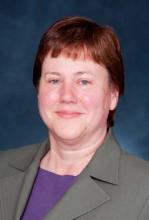Recently, I had an unexpected hospitalization for what ultimately proved to be ovarian torsion. I spent 4 nights in the hospital, 2 preoperatively and 2 postoperatively. While I was pleased with the care I received, I also learned a few things that will influence my future hospital-based practice. Herewith, in no particular order, are my observations:
• Emergency department wait times matter. Much has been written about inappropriate utilization of the ED and throughput. I realize that not everyone in the waiting room has a truly emergent problem, but the 75 minutes between my arrival and the time I was triaged were the longest 75 minutes of my life. I was in so much pain that I couldn’t even advocate for myself.
• When faced with equivocal diagnostic testing, return to the history and physical as Sir William Osler instructed.("Listen to your patient, he is telling you the diagnosis.") I am so fortunate to live in the 21st century and to have immediate access to diagnostic imaging, labs, and a good surgeon. It is not lost on me, however, that had CT and ultrasound not been available (and nondiagnostic), my exam and white blood cell count would have taken me to the operating room without delay, shortening both my hospital stay and my recovery time. Still, I recognize that the retrospectoscope has 100% accuracy, far exceeding that of we human physicians.
• Opioids are not the enemy. After receiving multiple doses of intravenous opioids in the ED, I asked for ketorolac. During the 2 days between onset of pain and surgery, I relied upon the ketorolac for most of my pain relief. This is in part because I felt it worked better than the opioids (but did not eliminate the need for opioids) but also in an effort to be a "good patient." When I thought I might be going home, I stopped asking for the ketorolac. In short order, the pain worsened, my vital signs worsened, and I was off to the OR for removal of what proved to be a hemorrhagic, necrotic ovary.
• Small things matter, communication. Our system has spent considerable energy improving communication between staff and patients, utilizing communication boards. The professionals caring for me performed wonderfully in this respect – without fail, I knew their names and their extensions. I never knew, though, when my doctor would be rounding.
Because of on-call responsibilities and emergencies, the times ranged between 6 a.m. and 2 p.m. I completely understand why this happens, as it has occurred in my own practice. I will remember to keep my patients informed about my own schedule as much as I can going forward.
• Small things matter, miscellaneous. Medical tape leaves adhesive residue that takes days to remove – nail polish remover is more effective than alcohol for adhesive removal. ...An improperly secured Foley catheter can wreak havoc. ... There is literally nothing on TV worth watching for days at a time, despite having 46 channels. ... Clear liquids have more sugar than should be allowed, even for those of us who are not diabetic.
Being sick is very tedious.
As a medical student (more years ago than I care to count), I participated in various activities intended to raise awareness and sensitivity to the patient experience. After my recent refresher course, I hope to be a better doctor to my patients.
Dr. Fredholm and her colleague Dr. Stephen Bekanich are codirectors of Seton Palliative Care, part of the University of Texas Southwest Residency Programs in Austin. They alternate contributions to the monthly Palliatively Speaking blog (http://tinyurl.com/Palliatively).



